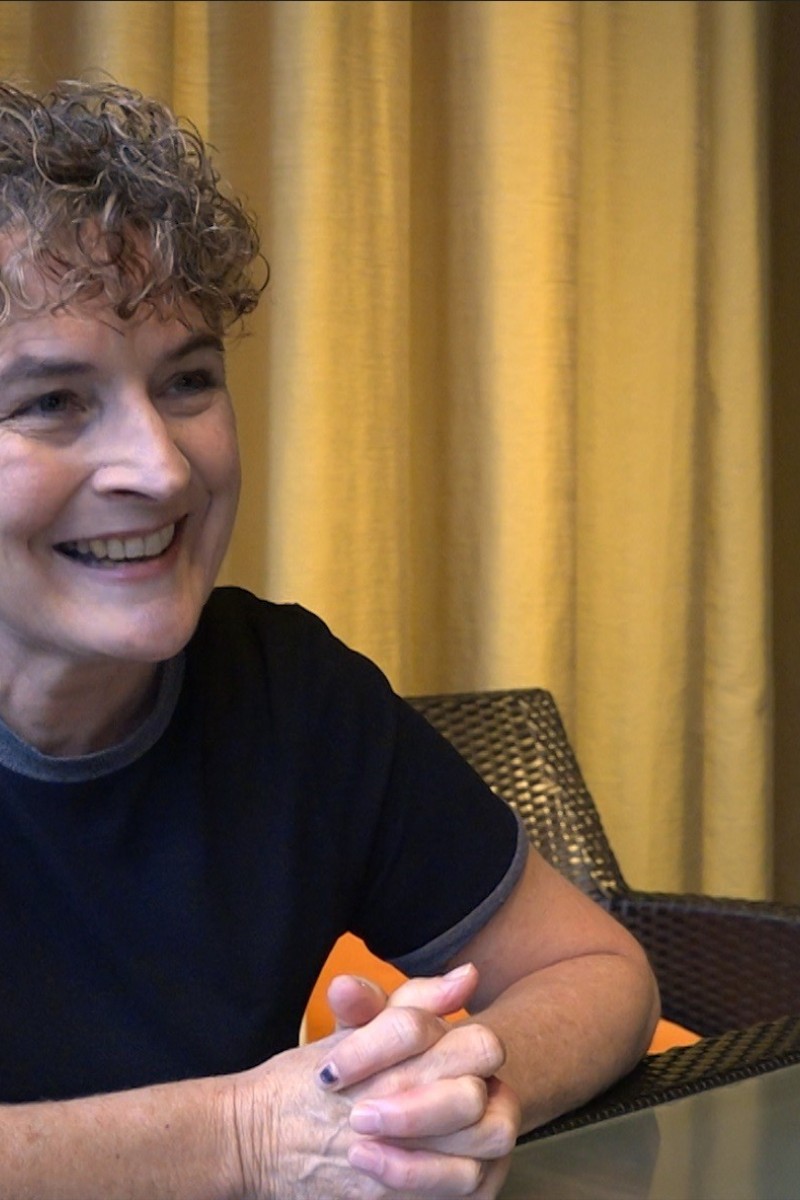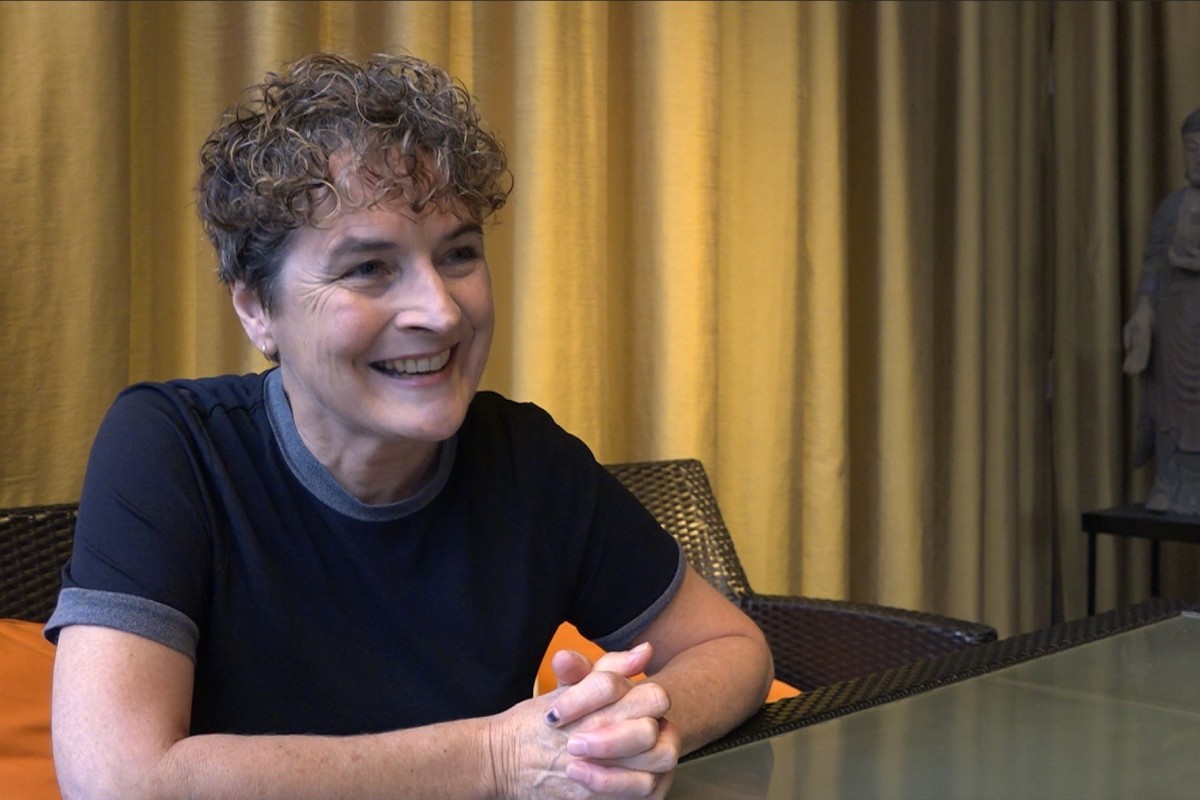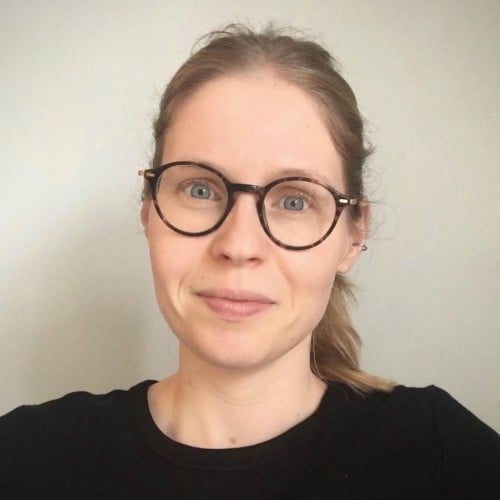
Kate De Goldi on why she wrote her books to be love letters to New Zealand, and how she gained the confidence to become a writer
The previous winner of the prestigious Margaret Mahy Award wants to show off the culture and the landscape of the island country
 Kate De Goldi
Kate De GoldiIn 2010 and 2011, tragedy struck Christchurch, the green, artsy, and traditionally “English” city in New Zealand’s South Island. Devastating earthquakes ripped out nearly all of its cultural heritage.
But the old streets, churches, galleries and coffee shops that were lost live on in the stories of New Zealand writer Kate De Goldi. Her most recent novel, From the Cutting Room Floor of Barney Kettle, is an ode to the city and the people living there.
“I was writing Barney Kettle on the day of the 2011 earthquake,” she explained to Young Post when she was in town last month for the 2018 Hong Kong International Young Readers Festival. It was going to be a very different book. After the disaster, however, she realised that Barney’s story also needed to be Christchurch’s story.
But even before Barney, De Goldi was charting the peaks and valleys of New Zealand’s dramatic landscape in her stories. Having grown up reading the works of postcolonial writers in America, Canada and Australia, De Goldi wanted to be part of the narrative that was emerging from her own island.
“When I first started writing in earnest, I was quite obsessed with the idea of putting my city on the page, my city and the landscape that I grew up in,” she says.
“That was a very important part of writing for me, literally naming the place that had formed me.”
Although De Goldi’s stories are deeply rooted in New Zealand culture, her themes are universal. Her stories revolve around experiences that readers of all ages will be familiar with, because ultimately, she says, she is drawn to human stories.
“I don’t think of my books as being prompted by issues, they just emerge from the stories of my characters.”
She adds: “After you’ve been writing for a few years, you sort of notice that you’ve got recurring themes, and I realised that one of mine was loss and its different guises.” That can mean loss of a family member, loss of a city, or even the loss of childhood, which as De Goldi points out, is “one of the profound losses in life”.
De Goldi reckons that deep down, she always wanted to be a writer, but it took a long time for her to admit it out loud. “There was a period where I absolutely wanted to write, but I didn’t know how to do it. I thought it was presumptuous or arrogant; I thought I wasn’t adequate to the task.”
Getting over that self-doubt wasn’t easy, but as the author has learned, “you just have to write more and more in order to lessen that self-consciousness”.
The final catalyst, she says, was when she sat down at her husband’s computer for the first time and her fingers touched the keyboard. She wrote a story, one which had been floating around in her head for a decade; it was, she says, “like taking a cork out of a bottle”.
Since then, she has gone on to publish seven young adult fiction novels, and three picture books, and has earned a string of accolades, including winning the prestigious Margaret Mahy Award, a New Zealand literary prize, in 2011.
It may seem like well-worn advice, but De Goldi believes that reading really is the key to becoming a better writer. She recalls reading an interview with one of New Zealand’s best-known poets, Bill Manhire, in which he was asked what the best advice he had ever received was.
“I realised his answer is exactly what I’ve always thought,” she says. “It was, ‘Read, read, read, read, write, and read some more’. I never attended a creative-writing class in my life. I learned everything from reading.”
The next stage, she says, is to simply start writing.
“Writing is about bum glue,” she jokes. “You have to sit there and just do it.
“It won’t be easy all the time, but it will kind of be splendid fun as well.”
Edited by Nicole Moraleda
